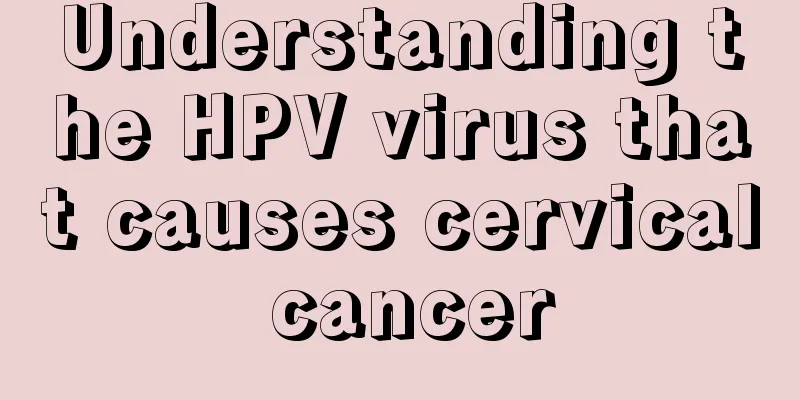Understanding the HPV virus that causes cervical cancer

|
Cervical cancer is a major health hazard for women. There are many factors that cause it, and HPV infection is one of them. Knowing about this virus can help women prevent cervical cancer. What is HPV HPV, or human papillomavirus, is an epithelial virus with high specificity. German scientist Zur Hausen found after decades of research that HPV is the culprit of cervical cancer! About 80% of women will be infected in their lifetime, and 90% can be cleared within 8 to 10 months. Only 10% to 15% of people are continuously infected, and they have a very high chance of developing cervical cancer. A vaccine for HPV infection has been developed, which is an important step in the prevention of cervical cancer. The infection routes are as follows: direct infection such as sexual intercourse, repeated pregnancy, smoking, oral contraceptives, and low immunity; indirect infection such as shared use of baths, bathtubs or towels, swimming pools, utensils, and items. Correctly understand the results of HPV tests HPV test results are negative or positive. A positive result indicates infection with the HPV virus, which is a necessary condition for cervical cancer, but infection with this virus does not necessarily lead to cervical cancer. There are many other related factors. Many women will have it, but most of them can be eliminated on their own, so there is no need to panic when the test result is positive, but you should also pay attention and do more tests to prevent missed diagnosis. A negative HPV test result indicates that you are not infected with any of the 21 HPV viruses tested, and your risk of developing cervical cancer is extremely low before the next routine checkup. HPV infection is a long process, with a latent period of several years. Once the body's immunity is reduced or other pathogenic factors act together, the latent virus can resume activity and cause harm to the human body. |
<<: Related risk factors of brain tumor
>>: What preparations should family members make when a pancreatic cancer patient is hospitalized
Recommend
How long can you live after complete bladder cancer removal
Bladder cancer is a very common disease in urolog...
What is pseudomyopia? It has these characteristics
There are two types of myopia: false and true. Fa...
What causes gastric cancer patients to have fever?
Why do patients with gastric cancer have fever? C...
How to treat nasal congestion?
Nasal congestion is a condition that everyone has...
Reasons for high white blood cell count
White blood cells are a very important type of ce...
What are the functions and effects of Wubeizi?
Wubeizi can mainly play the role of clearing away...
Cost of chemotherapy for endometrial cancer
Endometrial cancer is one of the malignant tumors...
What causes tooth decay and bad odor?
Speaking of tooth decay, I believe many people ar...
Teeth Whitening Tips
Almost every day we can see advertisements about ...
What disease is nosebleed a precursor to?
When facing the problem of nosebleed, we need to ...
The correct way to cut mango
Mango is a fruit with good color, aroma and taste...
Can drinking ice water help you lose weight
In summer, due to the hot weather, many people li...
The bumpy spots on the nails
It is very common to have small bumpy spots on th...
The harm of softener
Hair can be straightened or softened. No matter w...
Eating barbecue frequently is harmful to your health. Seven ways to eat it can effectively reduce the harm
Barbecue has become an indispensable part of youn...









